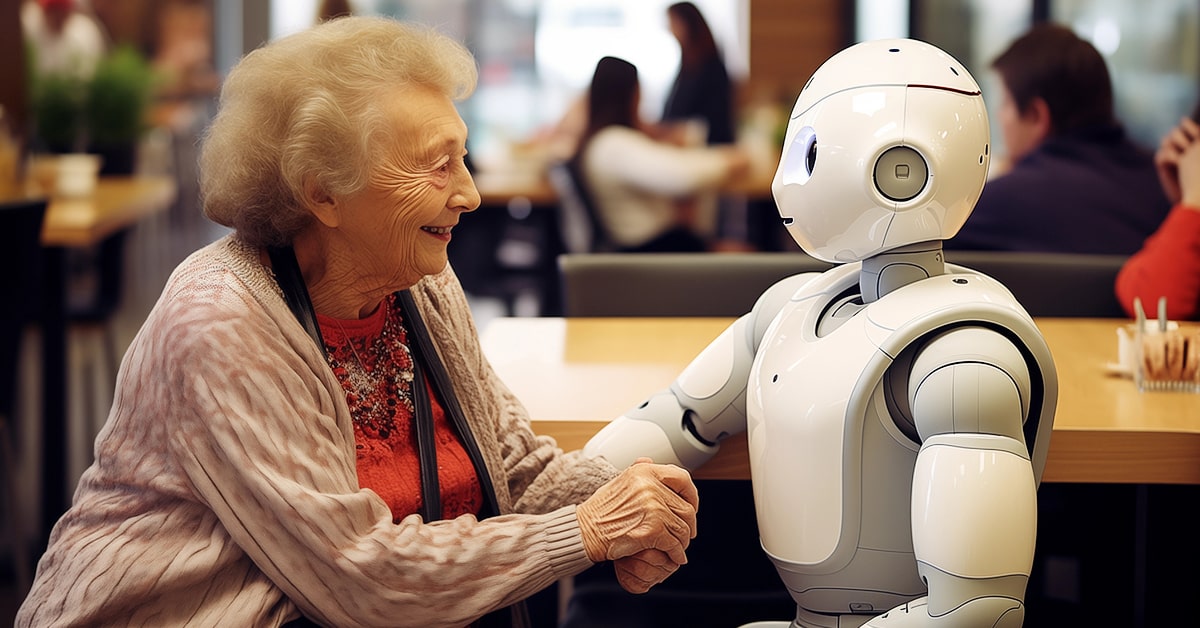Increasingly, older adults are turning to human-like robots for companionship and healthcare management. But new research from FIU Business finds that U.S. seniors have concerns about the digital dependency, costs and data security when relying on the robotic support.
Researchers found that wellness monitoring, companionship and maintaining independence are among the leading drivers of respondents’ willingness to accept the tech-savvy robots.
Published in Technology in Society’s September 2024 issue, the research focuses on artificial intelligence (AI)-powered technology and studied potential users’ perspectives in the “Agetech” platform known as intuition robotics.
The robots are equipped with a camera, microphones and speakers. They can respond to voice commands, answer questions, play music and provide reminders for appointments or medications as well as suggest activities such as stretching exercises, brain games and social events. The robots monitor patients’ vital signs and in-home activities, providing a direct communication channel with their primary care provider.
“Notifications can be designed based on medical needs - reminding patients to take medication at 6 a.m., ensuring the correct dosage is taken, and alerting against taking certain drugs together to prevent harmful interactions” said Pouyan Esmaeil Zadeh, associate professor of information systems and business analytics at FIU Business, who conducted the research. “We can customize features to display empathy and simulate many aspects of human interaction, making them more appealing as social partners.”
There are currently roughly 62 million adults ages 65 and older living in the U.S., according to 2022 data from the U.S. Census Bureau.
In the study, researchers examined older adults’ knowledge and understanding of companion robots and their attitudes toward using them in their daily live as well as challenges they might encounter.
The mixed-method research included open-ended survey interviews, conducted in January 2023, with 182 adults aged 65 or older in the U.S. to determine familiarity with AI and awareness about smart devices. Other questions asked participants to identify the benefits and advantages, perceived concerns and risks, overall opinions, and willingness to use companion robots.
Of the participants, 76% described their opinion of companion robots as positive, 24% negative. Their willingness to use the robots was also significant - 65% indicated they would use them, 29% said they might use it in the future and 6% said they would not.
Participants highlighted tracking health wellness as well as companionship and support as benefits that companion robots would deliver. However, concerns included over-dependence on robots and social isolation, costs of having the robot, and privacy - will the devices listen to or collect data not related to health matters - or hacking.
“Some mentioned the stigma that others might assume they have a chronic issue, which is why they need to use a robot,” said Zadeh. “They need to be educated that using a robot doesn’t mean they can’t do their personal tasks alone; it means they need some support to do things faster and more easily.”
The quantitative segment of the study collected data from 313 adults based on the perceived benefits already identified. Zadeh noted that this data could be used by technology designers, as well as by insurance companies, senior nursing homes and healthcare providers to maximize the benefits delivered by the robots, mitigate users’ data concerns and implement the correct policies to manage patients’ wellbeing.
Zadeh conducted the research with Mahed Maddah of Suffolk University.

